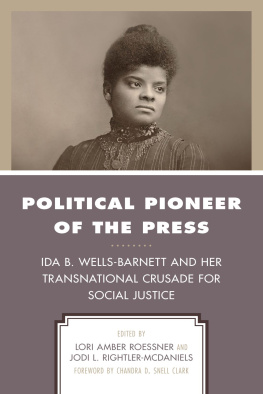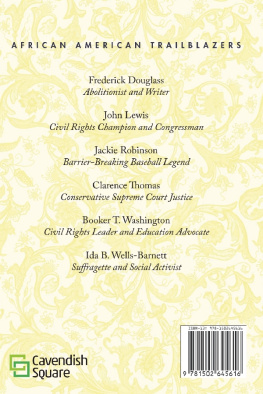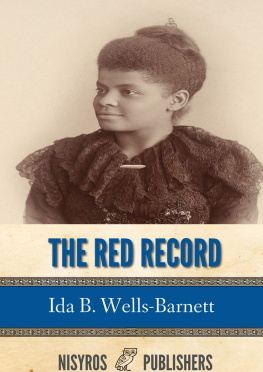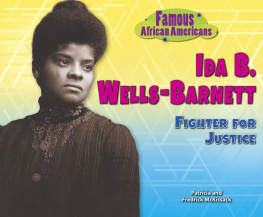Political Pioneer of the Press
Women in American Political History
Series Editors : Pam Parry and David R. Davies
Advisory Board : Maurine Beasley, Barbara G. Friedman, Karla K. Gower, Janice Hume, Margot Opdycke Lamme, and Jane Marcellus
Women in American Political History focuses on influential women throughout the history of American politics. From the Colonial period through the founding up to the present, women often have played significant and meaningful roles in politics, both directly and indirectly. Many of their contributions have been overlooked. This interdisciplinary series seeks to advance the dialogue concerning the role of women in politics in America and highlight their various contributions, including women who were elected and appointed to office and those who have wielded political power behind the scenes, such as first ladies, journalists, activists, and public relations practitioners. The series welcomes contributions from all methodologies and disciplines across the social sciences and humanities.
Recent Titles
Press Portrayals of Women Politicians, 1870s2000s: From Lunatic Woodhull to Polarizing Palin
Teri Finneman, 2015
Gendered Politics: Campaign Strategies of California Women Candidates, 19121970
Linda Van Ingen, 2017
Ruby A. Black: Eleanor Roosevelt, Puerto Rico, and Political Journalism in Washington
Maurine H. Beasley, 2017
Women Politicking Politely: Advancing Feminism in the 1960s and 1970s
Kimberly Wilmot Voss, 2017
Political Pioneer of the Press: Ida B. Wells-Barnett and Her Transnational Crusade for Social Justice
Edited by Lori Amber Roessner and Jodi L. Rightler-McDaniels, 2018
Political Pioneer of the Press
Ida B. Wells-Barnett and Her Transnational Crusade for Social Justice
Edited by
Lori Amber Roessner and
Jodi L. Rightler-McDaniels
LEXINGTON BOOKS
Lanham Boulder New York London
Published by Lexington Books
An imprint of The Rowman & Littlefield Publishing Group, Inc.
4501 Forbes Boulevard, Suite 200, Lanham, Maryland 20706
www.rowman.com
Unit A, Whitacre Mews, 26-34 Stannary Street, London SE11 4AB
Copyright 2018 The Rowman & Littlefield Publishing Group, Inc.
All rights reserved . No part of this book may be reproduced in any form or by any electronic or mechanical means, including information storage and retrieval systems, without written permission from the publisher, except by a reviewer who may quote passages in a review.
British Library Cataloguing in Publication Information Available
Library of Congress Cataloging-in-Publication Data Available
ISBN: 978-1-4985-3032-3 (cloth : alk. paper)
ISBN: 978-1-4985-3033-0 (electronic)
 The paper used in this publication meets the minimum requirements of American National Standard for Information SciencesPermanence of Paper for Printed Library Materials, ANSI/NISO Z39.48-1992.
The paper used in this publication meets the minimum requirements of American National Standard for Information SciencesPermanence of Paper for Printed Library Materials, ANSI/NISO Z39.48-1992.
Printed in the United States of America
To the fearless social justice crusaders, who are dedicated to righting wrongs by following the example of Ida B. Wells-Barnett and shining the light of truth upon them.
Contents
Chandra D. Snell Clark
Lori Amber Roessner and Jodi L. Rightler-McDaniels
Norma Fay Green
Joe Hayden
Jinx Coleman Broussard
Lori Amber Roessner
Kris DuRocher
Lori Amber Roessner
Patricia A. Schechter
R. J. Vogt
Chandra D. Snell Clark
Kathy Roberts Forde
Norma Fay Green
When School of Journalism & Electronic Media Director Peter Gross walked into my office in spring 2012, Jimmy Carter, the peanut farmer from Plains who told the world that the time for racial discrimination was over, peered out from the files scattered on my desk. Gross understood that Carter, the subject of my next book project, was the focus of much of my attention, but nevertheless, he asked for my assistance. Ida B. Wells-Barnetts great-granddaughter Michelle Duster had been in contact with him about an effort to construct a monument to the memory of Wells-Barnett in Bronzeville, the South Side Chicago neighborhood where the social justice crusader had lived and worked after 1895. Gross was not able to offer much by way of financial support, but he promised to do what he could to raise awareness about the project. On that day, without fully realizing it, Gross set the wheels of this project into motion; thank you, sir, for your prompt to reexamine the life and legacy of this extraordinary social justice crusader. As one of the contributors to this volume notes, Ida and idea are only one letter, one step removed from something significant.
Thank you, Peter, for making that step real to me.
That conversation prompted me to temporarily cast my Carter files aside to make way for my pen and steno pad; in the notebook, I sketched an outline for what would become the Ida Initiative, an interdisciplinary project to foster research about the life, work, and legacy of Ida B. Wells-Barnett and other likeminded social justice crusaders, and I enlisted the help of an interested doctoral student, Jodi L. Rightler-McDaniels, to assist me in constructing a living monument to the life and legacy of Wells-Barnett. In the ensuing years, participants in the Ida Initiative have constructed a permanent website dedicated to raising awareness about the life, work, and legacy of Wells-Barnett, facilitated several scholarly panels on Wells-Barnett, and organized the inaugural Ida B. & Beyond conference, a one-day symposium hosted in spring 2015 at the University of Tennessee, which featured keynote speaker Mia Bay and scholarship about the life, work, and legacy of Wells-Barnett and other likeminded social justice crusaders.
The conference papers presented at the inaugural Ida B. & Beyond conference inspired this edited volume, and without the tireless efforts of participants in the Ida Initiative and the Ida B. & Beyond conference, this volume would not exist. A special thanks is deserved for the early participants in the Ida Initiativethe University of Tennessees (UT) Ready for the World Program; UT undergraduate students enrolled in the history of mass communications; then-UT graduate students Jodi L. Rightler-McDaniels and Shiela Hawkins; and UT College Scholar R.J. Vogt, who inspired by the initiative wrote his undergraduate senior thesis on the advocacy journalism of Wells-Barnettand for those who answered Idas call and participated in the inaugural Ida B. & Beyond conference, especially to keynote speaker Mia Bay and the scholars, such as Jinx Coleman Broussard and Chandra Clark, who contributed conference papers to the symposium. The conference inspired other contributors to answer Idas call; some, such as historians Patricia A. Schechter and Kris DuRocher, had spent years researching the life of Wells-Barnett for books and monographs; others, such as Kathy Roberts Forde, were casting fresh eyes upon Wells-Barnett to consider her early contributions to the African-American freedom struggle and to place her work against the backdrop of a white supremacist New South. Together, in this volume, we have constructed what Chicago Defender columnist Rebecca Stiles Taylor referred to as a spiritual monument to the life and legacy of Wells-Barnett.
Monuments, as Taylor acknowledged, are not constructed without the toiling of a community, and I would be remiss not to reserve my greatest words of appreciation for coeditor Jodi L. Rightler-McDaniels and UT graduate assistant Monique Freemon for their amazing contributions to this volume. Next in line, a special thanks must go to series co-editor Pam Parry, who attended an Ida Initiative panel at the American Journalism Historians Association, answered Idas call, and found us. Parry suggested that Wells-Barnett would be the perfect subject for Lexington Books Women in American Political History series and became a tireless champion of this project. She, alongside series coeditor Dave Davies, offered invaluable feedback on the manuscript; likewise, the staff at Lexington Books, in particular Emily Roderick, have made this journey seamless. Thank you.











 The paper used in this publication meets the minimum requirements of American National Standard for Information SciencesPermanence of Paper for Printed Library Materials, ANSI/NISO Z39.48-1992.
The paper used in this publication meets the minimum requirements of American National Standard for Information SciencesPermanence of Paper for Printed Library Materials, ANSI/NISO Z39.48-1992.